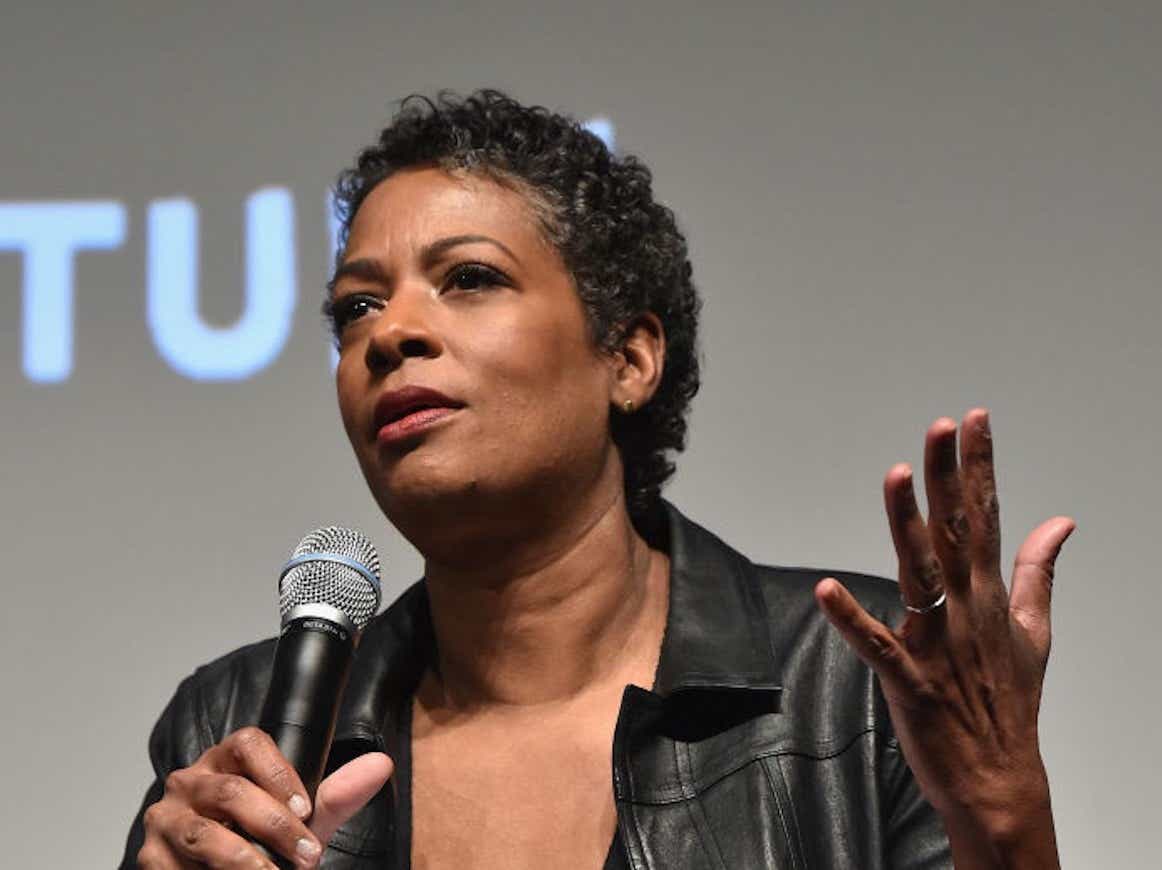In The Way I See It, Porter showcases Souza’s experiences capturing President Ronald Reagan and President Barack Obama in the White House — and follows Souza’s foray into activism during President Donald Trump’s administration.
Despite their different policies and viewpoints, Porter explains that Reagan and Obama had more in common than you would think. She weighs in on what she hopes viewers learn from the film and carry into the election below…
Wake-Up Call: We’re in the midst of the 2020 election right now, with people sending in mail-in ballots and going to the polls early. What did you hope to convey about the executive office as a whole in this movie? What do you hope people learn about Pete and his experiences?
Dawn Porter: I hope that people will remember how important the office of the presidency is and how important ethical, compassionate, intelligent, calm leadership is in this country. We’ve had that before and that is not a partisan idea. This is a human idea, and I hope people will take those memories with them as they go to vote.
It was so interesting to see the Obama and Reagan administrations through Pete’s eyes, side by side. What do you hope to show about each of them?
Pete spent so much time working under a Republican president and a Democratic president. He admired the way each of them did their jobs. He didn’t love their every decision — we all have different opinions about particular policies. But at each administration’s core, they were both presidents who respected other people.
They put the American people first and Americans respected them. Souza had a bird’s-eye view of what that kind of leadership looks like. And I think his photos underscore the importance of that. I think it also makes us miss when there was a time when we really had confidence in our leadership.
One of the most interesting points to me from the documentary, is that, unlike other administrations, President Trump doesn’t let a photographer take personal photos of him in the White House.
I think it raises a lot of questions, you know? The presidency is the people’s house. You serve at the pleasure of the people and it’s important for us to know what’s happening, how decisions are being made, who is making them and what the process is. You can’t trust the outcome if you don’t trust the process.
We’re missing a window into the process, which was much more apparent in prior administrations.
Besides a sort of nostalgia for what we’re missing, as you mentioned, what do you hope viewers gain from watching this right now?
I hope they enjoy it. I hope they remember a calmer time. I hope they feel inspired and proud that this country was able to come together to elect its first African American president, and that president represented us ably and around the world, and that the United States was respected.
That doesn’t mean you agree with everything, but it meant there was a basic level of respect. The Obama administration respected other countries and in turn, they respected the administration. I hope people remember that. I really worry that people don’t just throw up their hands and say all politicians are bad. That’s not true. This politician is bad. I hope this helps them remember that there are people who go into public service for the right reasons and do their best in an ethical, competent and compassionate way.
In the past you’ve covered a lot of hot button topics, like abortion rights. How was making this documentary different?
Those were more about analyzing particular policies and choices. This is about something that’s fundamental to every human being — which is character. I hope that the lessons of this film translate to a lot of other areas. It’s not just about the presidency. It’s about how we as citizens behave.
I think that this is more about empathy and compassion and the idea that the president of the United States is still at the very core a person. What do we all value in people? We like people who are kind and caring. And we value people who work hard and treat each other with respect. And so that transcends your political party. That’s just about being a person.
Lastly, is there anything that really surprised you about the making of this documentary and working with Pete?
I love seeing in the Reagan administration, seeing he’s in his 20s, he was really young and you know, the idea to see somebody at the beginning of their career and how he’s trying to make his way, he’s trying to figure it out. And that’s like an experience all of us will have had, or will have at some point, but then for him to be able to come do the same job, you know, many years later… It was just such a cool experience to see somebody when they were young and then when they were older and then now to have his perspective on both periods of his service.
What’s next for you? Do you have any other projects in the works?
I’m just finishing up a series about mental health with Oprah Winfrey and Prince Harry. During the pandemic, I think everybody has experienced a mental health strain and the series really addresses what that looks like in many different forms. It’s going to get into the stigma about needing help and feeling anxious or depressed. They’re going to dive into it in a really personal way. I’m super excited about that!
This originally appeared on Medium.









